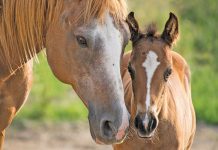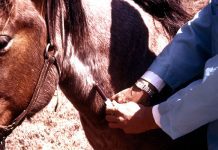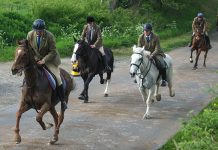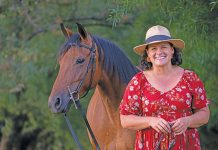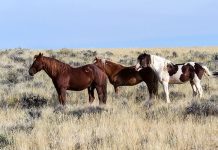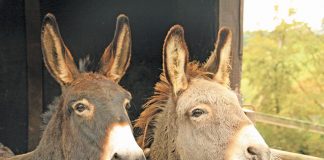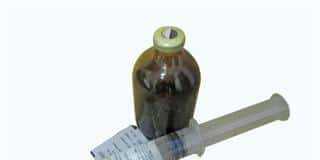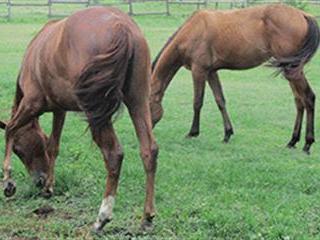
Researchers have found that studying the posture of your horse can give clues to its health. A horse that’s aggressive or very passive may be ‘showing’ you it has a problem. A normal, healthy horse spends about a third of its life eating or drinking, a third moving about and interacting with other horses and a third resting or sleeping.
A group of horses in a pasture will have their heads down, grazing, and usually the whole herd grazes in the same direction. Sub-groups of the herd, often a mother and her foals of different ages, or a pair of horses that are stable mates, will graze together. There’s a rhythmic swishing of tails as they swipe at flies and midges, and occasionally they raise their heads, look around and resume grazing.
If something attracts the attention of one horse, the others will swing their heads and gaze in the same direction. This is normal grazing behaviour. However, a horse that’s lame or otherwise uncomfortable will tend to lag behind. Teeth problems, meanwhile, prohibit effective chewing and the horse may stand and chew for a long time with its head up, before lowering it to graze.
Bullied
Sick horses are often bullied and tend to separate themselves from the herd. On the other hand, if horses are being aggressive they could be in pain. Ill horses that aren’t eating will move with the herd, but their head hangs and they don’t graze as such, instead they just ‘lip’ at the grass. Horses have a well-developed flight instinct and, when playing, they like to practise running and bucking. Like children, young horses will often play together – foals race each other and play ‘catch’, cavorting as first one, then another, takes the lead.
Alone
Yearlings like being adventurous and will often gallop full speed up and down dongas, jumping every rock and tree stump they encounter. A young horse that’s not joining in the games, but standing to one side, or lagging far behind the others might be ill. Stiffness, sore muscles, back problems and insufficient feed for the type of horse can change the play behaviour of horses.
In nature, wild horses often rest during the day and eat at night. So it’s not unusual to see horses drowsing with their heads down, ears out sideways, on a hot summer afternoon. It is also not unusual for a horse to sleep lying down. Usually, the whole herd sleeps at the same time, with some horses standing and others lying down. However, if a horse is resting or lying down while the rest of the herd is eating or playing, there could be a problem.
Contact Dr Mac at [email protected]. Please state ‘Horse talk’ in the subject line of your email.


